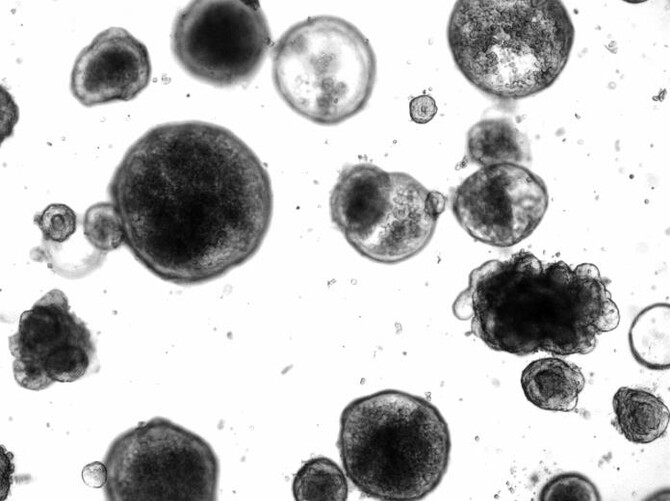Penn Study Details Powerful Molecular Promoter of Colon Cancers
Cancer researchers already know of some oncogenes and other factors that promote the development of colon cancers, but they don’t yet have the full picture of how these cancers originate and spread. Now researchers from the Perelman School of Medicine at the University of Pennsylvaniahave illuminated another powerful factor in this process.
“This work reveals and unravels an additional pathway for the origin of colon cancer,” said senior author Anil K. Rustgi, MD, the T. Grier Miller Professor of Medicine and chief of the Gastroenterology division.
Explorations of this pathway could lead to new ways of categorizing and treating colon cancers, which, together with less common rectal cancers, kill about 50,000 Americans every year.
The research, published this week in PLoS Genetics, follows a 2013study in Genes and Development from Rustgi’s group, which found that a protein called LIN28B promotes cancerous growth in intestinal cells by suppressing the Let-7 family of molecules.
LIN28B has attracted keen interest among biologists in recent years. The protein’s suppression of Let-7 molecules normally helps keep embryonic stem cells in their stem-like state, not only in humans and other mammals but in evolutionarily distant species too. When Let-7 molecules are allowed to work, cells tend to move out of the stem-like state and mature into specific cell types, with much less capacity for uninhibited growth.
This ancient interaction between LIN28B and Let-7 is clearly important for the normal development of animals to maturity and for other growth-related processes such as tissue regeneration after injury. But as Rustgi and other scientists have been finding, LIN28B’s suppression of Let-7 is also abnormally switched on in many cancers.
In the new study, Rustgi’s team, including first author Blair B. Madison, PhD, who at the time was a postdoctoral fellow in the Rustgi laboratory and is now an assistant professor of Medicine at Washington University, looked downstream of the LIN28B/Let-7 interaction, to determine how Let-7 molecules normally keep intestinal cells from turning cancerous.
Click here to view the full release.








